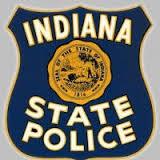EVANSVILLE, Ind. – The 17th-ranked University of Southern Indiana men’s basketball team shot a blistering 72.7 percent in the second half and defeated Rockhurst University, 98-77, Saturday afternoon at the Physical Activities Center. USI sees its record go to 14-0 overall for the third time in the history of the program and 4-0 in the GLVC, while Rockhurst goes to 7-6, 1-4 GLVC.
The Screaming Eagles spotted the Hawks a pair of leads during the opening minutes, trailing by as many as four points before the offense kicked into gear. USI, which hit 11 of its first 14 shots, went on a 15-3 run to soar into the lead, 19-12. The run would continue as the Eagles pushed the lead to 17 points by the intermission, 50-33.
Senior guard Jeril Taylor (Louisville, Kentucky) and junior guard Marcellous Washington (Lexington, Kentucky) propelled the Eagles offensively with 24 points and 12 points, respectively, in the opening 20 minutes. Taylor was a blistering seven-of-10 from the field, five-of-seven from beyond the arc, and three-of-four from the line, while grabbing a team-best six boards.
Washington was just as hot from the field, hitting four-of-six from long range for all of his 12 first half points.
In the second half, the Hawks flew out of the locker room to cut the Eagles’ margin to eight points three times in the first 10 minutes before USI re-established command of the game. Washington, senior guard Bobo Drummond (Peoria, Illinois) and senior guard Cortez Macklin (Louisville, Kentucky) stopped the Rockhurst run by leading USI on an 11-3 run to make the score, 71-55, with 10 minutes left.
It was all USI in the final 10 minutes of the game as Eagles shot 72.7 percent in the second half (16-22) and expanded the lead to as many as 21 points twice, including the 98-77 final.
For the game, USI shot a season-high 64.2 percent (34-53), a season-best 60.9 percent from downtown (14-23), and 76.2 percent from the charity stripe (16-21). The Eagles, who had 16 three-point field goals for the game, also won the battle of the board for the eighth-straight game, 33-20.
Individually, Taylor led five USI players in double-figure scoring with 27 points, adding a three-pointer in the final stanza. He also had his fourth double-double of the season with a game-high 12 rebounds.
Sophomore guard Alex Stein (Evansville, Indiana) followed Taylor in the scoring column with 17 points, dropping in 13 points during in the second half. Washington was third on the squad with 16 points, hitting five three-point field goals, while Drummond and Macklin rounded out the double-digit scorers with 12 points and 11 points, respectively.
USI hits the road next week in the GLVC when it travels to Truman State University Thursday for a 7:30 p.m. contest in Kirksville, Missouri, and Quincy University Saturday for a 3:15 game in Quincy, Illinois.



